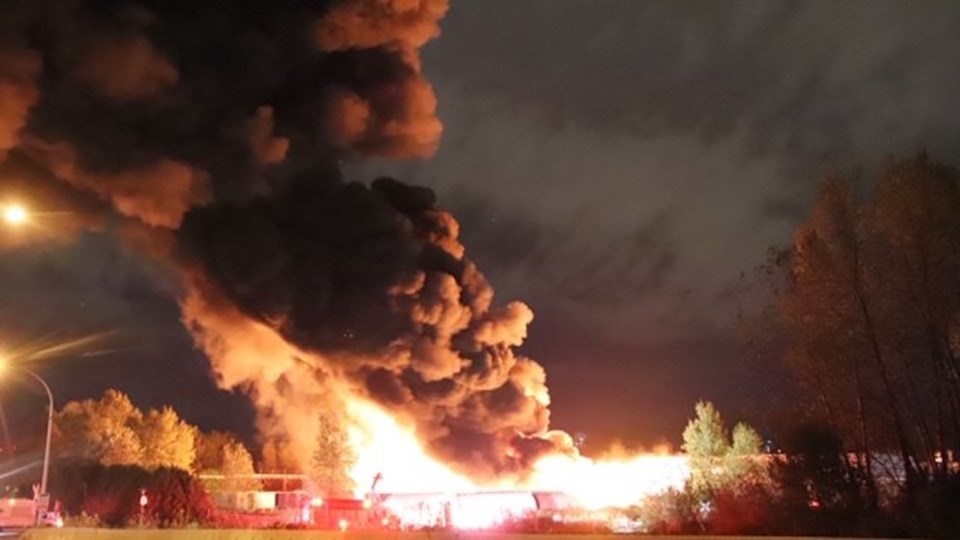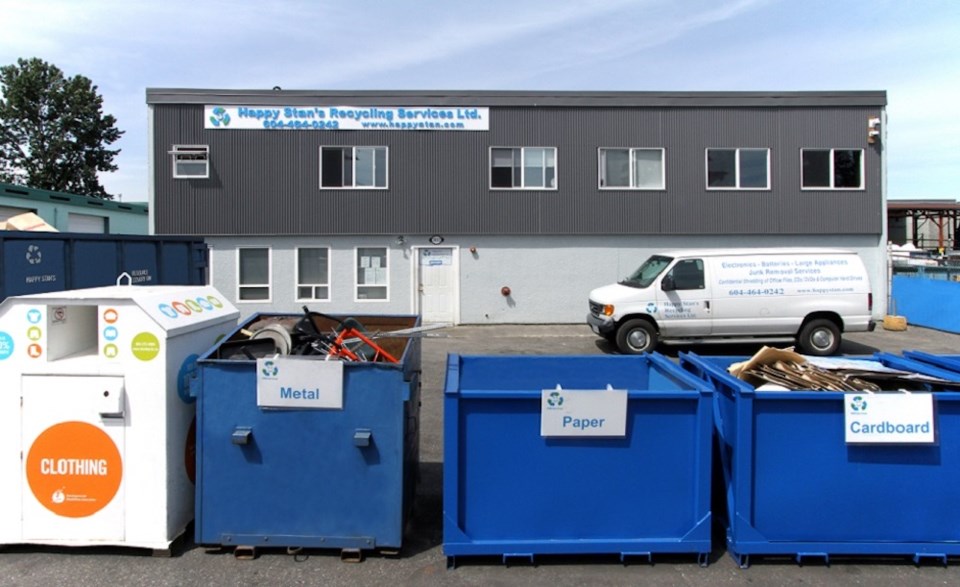A family-owned recycling business that has been operating in Port Coquitlam for decades is facing a huge jump in insurance costs.
Jamie Kaminski, owner of Happy Stan's Recycling, said insurance companies have substantially increased coverage costs while also making deductibles $250,000 or more.
"This is going to be devastating if we can't find insurance," said Kaminski.
His company is in the business of accepting, sorting and selling recyclables, such as paper, plastic bottles and cans, metals, electronics, light bulbs and even books, operating out of an 8,000-sq. ft. facility at 1603 Langan Ave.
Insurance costs have risen in recent years but this year is the worst.
Recycling risks grow
The cost to insure the building has increased from $20,000 to $100,000, according to recent quotes to his landlord; and Happy Stan's business insurance, due in September, is likely to skyrocket, too.
"We're in a dire situation," said Kaminski, who must cover the cost to insure the building even though he doesn't own it.
"Our insurance has been on extensions right now to figure his out."
But is Happy Stan's the only recycling business facing these increased costs?
The long-time business owner suspects he's not alone, and says inflated insurance costs could jeopardize the entire recycling industry.
"This is not just specific to us. This is reverberating throughout the industry," Kaminski said. "If we can't get insurance, these materials will just all go to the landfill."
Global insurance issue
Agencies the Tri-City News contacted agreed insurance costs are rising — for all businesses not just recycling companies and material handlers.
Solutions aren't immediately forthcoming.
The BC Financial Services Authority (BCFSA), which supervises the financial service sector, said in an email that it is is aware that property and casualty premiums are going up for most insured risks, "not just in B.C. and Canada, but overall worldwide as market conditions have hardened."
"There are a number of factors causing those increases: losses, under-pricing (pricing low), increases in reinsurance costs and inflationary costs. Insurers are permitted to charge premiums based on current market conditions and their assessment of the risk."
The BCFSA recommended businesses work with their insurance broker to find ways to reduce risk, a recommendation also made by the Insurance Bureau of Canada in its 2022 insurance facts for casualty and property insurance.
However, Kaminski said Happy Stan's is small, doesn't stack a lot of materials and has passed inspections by both Metro Vancouver and an insurance company, both of which the Tri-City News confirmed.
For example, Happy Stan's, which operates with a Metro Vancouver solid waste license, has passed monthly inspections, according to the regional authority.
Will government get involved?
Kaminski is worried his small business is caught in a world-wide insurance crisis that doesn't factor in specific local situations.
"What’s government doing because they are saying they want us to do more? They want more recycling."
Indeed, just last week the B.C. government backed 14 companies that recycle plastic waste into new products.
Associated risks with large-scale material handlers could result in fires, such as a spectacular blaze that that occurred in New Westminster in 2020.
However, there are risks associated with all kinds of recycling, including household recycling.
Return-It depots, for example, which are independently owned and operated, are also facing higher insurance costs.

Careless recycling can kill
Return-It only sets out the insurance requirements for collecting refundable beverage containers which are under the Return-It program, said Sandy Sigmund, vice-president of the not-for-profit, product stewardship corporation.
Still, there are ways the public can help these small businesses operate without incident, such as properly disposing of materials, including propane tanks and lithium-ion batteries.
Recycle BC, which handles municipal recycling, asks residents to not dump these items into their recycling bin because they can be dangerous.
For example, when batteries go through the mechanized sorting process in a material recovery facility they can ignite and start fires.
Struggling to find any insurer
Sorting recyclables responsibly can reduce hazards, said Ann Danilevich, manager of stakeholder relations, in a statement to the Tri-City News.
As well, she pointed to the Recycle BC website for more information as to how to handle recyclables properly.
As for Kaminski, he hopes that by raising the alarm a solution can be found to help Happy Stan's and other local recycling companies facing high insurance costs.
"There’s very few insurance companies that want to insure recycling companies," Kaminski said.


